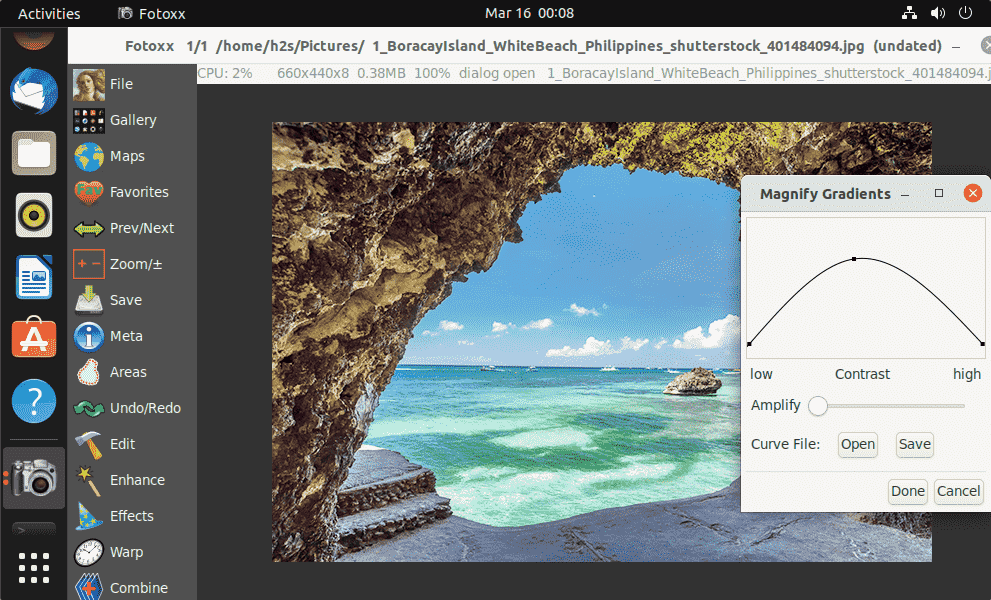Justin Tadlock
Stanislav Khromov announced Clarity, a plugin for hiding obtrusive banners, via Twitter and the Advanced WordPress (AWP) Facebook group today. It was first pushed to WordPress.org around a year ago, but the developer seems to be just now publicizing it.
The Clarity website describes its mission as: “Ads, upsells, and analytics banners have been running rampant in our WordPress dashboards for too long. It’s time to make them go away, once and for all.”
Clarity does not come with a settings screen. Once users active it, it attempts to hide banners and other notifications falling outside of its “acceptable ads policy,” which is currently a draft that Khromov has encouraged feedback on. This policy covers plugins that ask for reviews, inform users of discounts, or prompt them to upgrade to a commercial version.
The plugin’s goal is to hide those notices unless they are:
The plugin does include a link on the plugins management screen to report unwanted banners. It leads to a pre-filled issued template on Clarity’s GitHub repository.
The announcement was well-received by many on AWP, judging by the likes from members. However, several vocalized their opposition to the idea. Some called it “unethical” and “damaging” to the ecosystem.
Ads are a fact of life. They generate the necessary revenue for companies to continue maintaining their current products and building new ones. The WordPress industry is no different in that regard. However, these are often small companies where the wrong placement in the admin can mean the difference between creating new jobs and barely scraping by.
Freemium products are one of the ways that shops provide free features to end-users while also making a commercially-viable solution that keeps their business running. Banners for ads and user ratings are often the most effective methods of making a sale or generating more interest in the project.
“By creating an ad blocker – your selfish disregard to the commercial realities of [open-source] damages a delicate ecosystem,” wrote one developer[1] in the AWP thread. “If you use a free product – pay for it by tolerating a few nags.”
“The idea of taking someone’s work product, but bypassing their ads, is at a minimum unethical,” wrote another developer. “Nobody is forced to capitalize on the fruit of anyone else’s labor.”
Free software means giving users the freedom to change all that. If another developer comes along and blocks the behavior that those users want, it is fair game. Playing in the free-software sandbox means accepting that others can and will change the code you write every now and again. WordPress makes it even easier to do so via its hooks system.
Clarity is merely one tiny fish swimming in a vast ocean of plugins. If it had over a million active installs, maybe it would be realistically put a dent in some commercial shops’ profits. However, that is not the case. Any claim that it is damaging to the ecosystem is tip-toeing into hyperbole.
If it did have that many active installs, perhaps it would be a wake-up call for developers, a warning that users want to see change.
The question is: Do most users need such a plugin?
Maybe not, but it depends. The directory guidelines require that any admin notices — where most of the “offending” ads are located — must be dismissible. However, the standard is relatively loose in definition. Some plugins show the ad to every user logged into the admin, requiring each to dismiss it. Others refresh themselves on plugin updates, requiring additional action by the user. If a plugin is updated multiple times per week and adds a new admin-wide banner each time, it almost feels like it is skirting the rules, just a little bit.
Advertisements and other notices can also be problematic on client builds. Freelancers and agencies sometimes get that frantic call when a plugin update displays a new pro upsell message to clients who thought they had already paid what was required for their site. There are some ways to mitigate this, but they are not all 100% fool-proof in every scenario. Clarity would just be another wrench in the ol’ toolbox for tightening up those client sites, creating some extra peace of mind.
The plugin itself is not “intelligent.” It does not learn and grow on its own, evolving as more plugins are created. It requires a manual process of creating a curated list of selectors to target via CSS. The plugin hides banners according to this custom set of definitions.
As long as third-party developers do not create an ad-block blocker method within their own plugins, Clarity should keep some of the notices at bay. It is unlikely most even knew about this project until its announcement. With it now in the public sphere, I have few doubts that some will override it. It may depend on individual stances on user choice in advertising.
Clarity provides a method for plugin and theme authors to opt into the blocking of their own advertisements. They only need to check for a PHP constant to do so:
I doubt most would willingly buy into this system. However, I like the idea. The users who go through the trouble of installing and activating an ad-blocking plugin are unlikely the target audience anyway.
Clarity is a decent option for users who want to find a little calm amidst the noise, but it has its limits.
1. Advanced WordPress is a private Facebook group. Therefore, I did not include the names of the quoted sources in this article.
Hopefully this is enough for some companies that insert obnoxious advertising into the WP dashboard to quit and/or make their ads slightly less obtrusive. The fact that someone felt that spending time to implement this plugin means that a significant number of folks are annoyed at this abuse (this isn’t the only plugin that seeks to minimized the disruption of annoying WP dashboard msgs).
On a related note, I would LOVE for someone to create a plugin that disables animated icons in the WP dashboard. Some companies have decided that they want their plugin icons to scream “HEY, look at me!” by animating them. The animation serves no useful purpose and needs to either be prohibited by WordPress itself or a plugin created to prevent icon animation created.
“Make it and they will come…”
Blindly blocking notifications inside individual plugin pages, which this plugin does, is very risky. It’s only a matter of time until some “take action” notice is blocked. Without proper rating/reporting system that will allow users to distinguish between what is an ad and what is a legitimate notice – this looks sketchy. Keep in mind, many developers have put in thousands of hours to deliver a free product. Is asking a user for a review in a dismissible notice really that bad? I do get where the author is coming from, I just don’t agree on the method.
Unfortunately, abusive practices will eventually lead to extreme counter measures. It is sad that Clarity became necessary, but there is no denying that some developers “unethical” and “damaging” practices made it necessary..
Blindly blocking notifications inside individual plugin pages, which this plugin does, is very risky.
WordPress should provide a better API for these notifications which baiscally implement something like the above Plugin implements now.
Yes! Thank you! Blocking intrusive ads is nothing but upside for the WP ecosystem. If you want ads, don’t make them so obnoxious.
This should be a browser extension, as well.
So, Luke, I built a browser extension to add a command palette to WordPress sites, and it has some other “bonus” features that allow you to carry preferences between sites. One of which is notice hiding.
You can see it in action at: https://twitter.com/TurboAdmn/status/1489897787605008384
The plugin version is a little behind the extension version. But I’ll be updating it soon.
The non dismissal ads are irritating. But asking for a review is not a bad thing, in my opinion.
Also, if a plugin author failed to promote their pro plan, then what do you think how long they can continue their project. It brings a bit chance to sell the pro. Come on; everyone has to pay their bills.
In terms of the client’s requirements, there must be a consideration. But it’s exceptional. Buy the pro help each other.
I’m not against this tool. Anyone can build anything in this open space, but the justification for this work on this scale makes me worried. Sorry.
Probably the best ad for a pro version is a clear statement in the plugin’s description showing the differences between the free and pro version. I look for this before installing plugins and am surprised and frustrated when I can’t find it.
Another good way to promote the pro version is to display pro features on the plugin’s settings page with clear, unobtrusive labels (like “(Pro)”). However, a settings page where most of the items are labeled “Pro” would also be unacceptable. Some plugins with many pro-only features put them on a tab labelled “Pro” or group the free features together.
Also fine is to display a reminder of pro features in an unobtrusive sidebar.
A bit less acceptable is sending email to the admin promoting an upgrade.
Automatic plugin updates have removed an important opportunity for promoting the pro version. Manual updates had provided a great opportunity to remind us of the plug-in’s features, especially improvements in its pro features. Perhaps automatic updates should be reconsidered?
The types of notices Clarity seeks to block are not acceptable at all. Also unacceptable are notices to upgrade to pro triggered when undisclosed limitations are reached.
Asking for a review (or to promote a pro version) in the general admin dashboard IS a bad thing IMO. The dashboard isn’t the place for advertising, period.
There are plenty of possibilities and spaces where one can ask for a review; on the plugin settings page, on the plugin page at wp.org, after answering a support question and by building an awesome product. If ratings stays out, well, then maybe the product just isn’t all that.
Think about your marketing strategy before you decide to release a plugin on wp.org. It prevents panic play afterwards.
Annoying your users all over the admin isn’t the most effective way to get good reviews either. Keep in mind that having more than 20 plugins enabled for a WordPress website isn’t that uncommon. Now imagine that a lot of those keep asking for feedback or upgrades etc. And now imagine a person who maintain 50+ sites like that, getting constantly buggered.
A plugin should solve a specific problem, not get in the way.
A good marketing strategy combined with an amazing product should lead to awesome reviews and upgrades to pro products. A nag in the dashboard, won’t give you that.
This is a really interesting debate.
First of all, the glaring omission is of the WP Notify initiative, trying to get some kind of proper system for this into core. My colleague Jonathan Bossenger is trying to re-energise this and is looking for contributors to help.
Secondly, I have some perspective on this because I built a tool for WordPress which evolved to have an experimental notice hiding feature.
To be clear: my aim isn’t really to get rid of ads entirely as Clarity does, but rather to tidy up what is there, and – with the help of a browser extension – to carry user preferences between WordPress sites.
But in trying to build this you discover that there are some pretty bad practices. Alerts that get added with JavaScript can evade detection. Alerts that use the “updated” or “notice-error” class to force themselves onto the screen by pretending to be something they are not. Alerts that can’t be identified because they don’t have IDs.
It feels like an arms race to me, and the only way to make it work is for users annoyed by notices, and the developers who put notices in the dashboard, to collaborate and figure out how to make it work.
Clarity’s acceptable notices policy is a good start at trying to define some rules of engagement, but ultimately, if this issue is of interest, please go and get involved in the WP Notify project. That link again:
https://make.wordpress.org/core/2022/02/01/wp-notify-status-update/
I’m a very basic WP user and Ads brought by plugins and themes are a plague. I open my admin and I have to close Ads. I’m on my own site and I have Ads!
I paid for themes and plugins and not because of the banners. Greyed features, clear description of the Pro version are well enough to decide to buy the Pro version or not.
I used a theme that showed a banner every time I connect to my admin. I knew there was a Pro version. I knew I did not need it. So the banner was like a punishment more than an encouragement to buy the Pro version. I decided to buy… another theme. I will test Clarify.
To the people in the comments asking for a rating being intrusive…………………….yes it is.
Even worse is when those notices come as soon as you activate the plugin. Come on, let me use the plugin before you even ask.
There is nothing unethical about this plugin.
There should not be these admins for rating your plugins/themes. You should not be advertising your other plugins.
Look at this one: https://imgur.com/4DlJ55c
Not only is the dimiss link/button temporary (12 months), it is advertising OTHER plugins.
A dismiss is a dismiss is a dismiss, it shouldn’t be just for 12 months.
You are entering my admin area and abusing it. Imagine I enter your home, make myself a coffee and talk to you about my services. I am assuming you have a coffee maker and that you have a kitchen with a table.
Plugin and Theme authors fully knew the WordPress eco-system. I can download any of those plugins and themes, fork them. Those forks not having the abusive notifications.
For most plugin needs, there are at least 20 plugins doing whatever function you want.
Yes, I have bought themes and plugins that I like. I even hired some of the authors to customize things for me.
So many authors who have a team………you are not really doing the plugin, your team is…you might of done earlier versions but now your team is updating things. You are just sitting around directing. Yes I went there.
I use Firefox by the way, with uBlock Origin and Privacy Badger add-ons.
The one thing I do not like about this plugin, the acceptable ads option. NO.
With uBlock Origin, I can find any websites I want “acceptable”.
The reason why Clarity, uBlock Origin, Privacy Badger and so forth exist is because of abusive unethical practices by other people.
I do not want to know about the PRO version of your plugin/theme as soon as I activate the plugin/theme.
I do not want to know about other plugins/themes you might have as soon as I active the plugin/theme.
I do not want to rate your plugin as soon as I activate the plugin/theme.
I don’t want in a few days to get those notifications either.
I read the description of the plugin on wordpress.org before I download it.
All these notices are the unethical of the WordPress eco-system
Thanks so much for this article. I manage several sites for one client and I’m getting silly seeing the same ads for the same plugins every time I go to admin, not to mention my client occasionally goes in and wonders what’s going on. It reminds me of patients going to their doctor and telling them they saw an advertisement for some medication they don’t need. I just installed it on all but one of my client’s sites – that way, I’ll only see one and that’s okay.
I appreciate a little bit more clarity and less clutter in an interface that is supposed to play a technical role.
Been doing this for years, with other plugins. Glad to see its getting some coverage. Type disable into the plugin search you will find some gems. Disable comments, admin notices, SEO Bloat, WooCommerce bloat etc, just absolute gems. All really well maintained. This idea you will miss a plugin update is BS. You can always turn them off to check too. The notices part of WP is like 90s internet, popups everywhere. Also look at the major plugins like Yoast sticking full banner ads in. Your site, your choice, ads in a backend is so greasy.
Your email address will not be published. Required fields are marked *
document.getElementById( “ak_js_1” ).setAttribute( “value”, ( new Date() ).getTime() );
This site uses Akismet to reduce spam. Learn how your comment data is processed.
Enter your email address to subscribe to this blog and receive notifications of new posts by email.
WordPress Tavern is a website about all things WordPress. We cover news and events, write plugin and theme reviews, and talk about key issues within the WordPress ecosystem…
© All Rights Reserved. Powered by WordPress, hosted by Pressable







